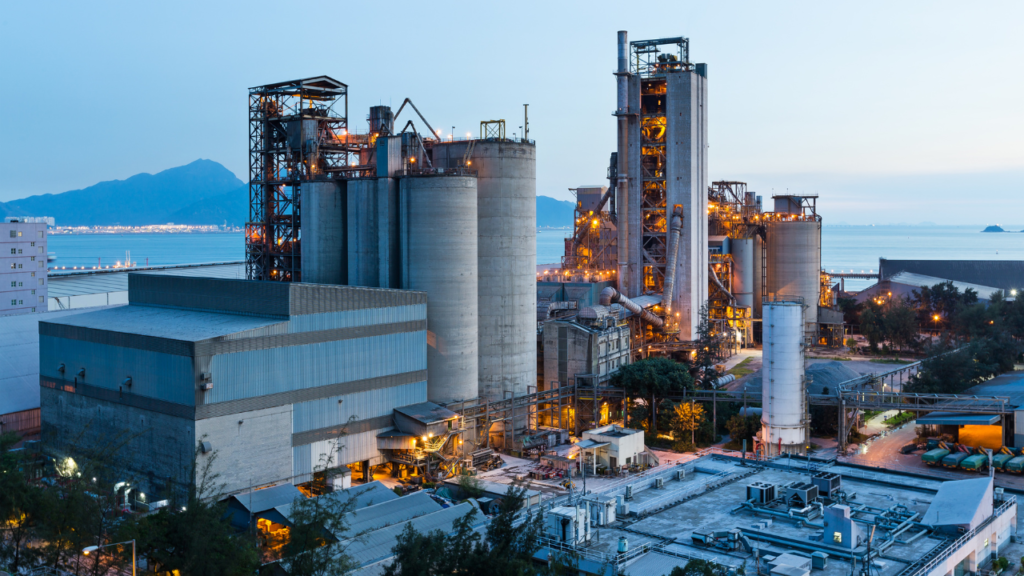The term “basic industries” might not be one you hear every day, but these businesses form the foundation of the global economy. They are the unsung heroes that supply the raw materials that fuel countless other industries. If you’re interested in a career in a stable and vital sector, or you’re considering investing in companies that provide the building blocks for our world, then understanding basic industries is a must.
What Exactly Are Basic Industries?
In short, basic industries are businesses that provide the raw materials needed for other industries to fabricate or manufacture finished goods. These companies start with the exploration or discovery of these materials and see the process through to extraction and processing.
Basic industries are essential for both developing and developed economies, as they supply the bulk of the materials for the products and services people consume daily.
| Important Links |
| 1. Top 10 High-Paying Jobs in Capital Goods |
| 2. Top 14 Well-Paying Jobs in Public Utilities 2024 |
| 3. Highest-Paying Finance Jobs in 2024 |
| 4. High-Paying Jobs in the Consumer Services Sector |
Subcategories of Basic Industries
The vast world of basic industries is broken down into several large subsectors, each playing a crucial role in the global supply chain. Here’s a closer look at some of the key players:
- Oil and Gas Extraction: Companies in this subsector operate and develop oil and gas reserves. This includes activities like crude petroleum production, mining and extraction of oil from oil shale and oil sands, natural gas production, and the recovery of hydrocarbon liquids.
- Jobs in this sector can range from exploration and feasibility studies for crude petroleum to drilling, well completion, and operation of equipment used in oil and gas preparation for shipment.
- Basic Chemical Production: This subsector focuses on the extraction of organic and inorganic raw materials to create new and valuable chemical compounds that are essential for the chemical industry as a whole. It’s important to note that not all chemical companies fall under basic industries.
- Synthetic chemists who develop complex chemicals would be classified in different sectors. Basic chemicals typically exclude pharmaceuticals and numerous other subsectors. The chemical sector is a highly influential industry impacting many others, including plastics, food, automobile, and glass production.
- Mining Industry: The mining industry extracts minerals from naturally occurring underground sources. Extraction methods include underground or surface mining, well operation, and even seabed mining. The global mining industry is a multi-billion dollar enterprise, and the revenue for the top 40 global mining companies amounted to a staggering $925 billion in 2021.
- This sector is projected for continued growth, with an annual growth rate of 3.93% between 2022 and 2025. A significant aspect of the mining industry is the production of rare earth elements, which are crucial for many high-tech companies and still a major player in world finance. China is currently the world’s largest producer of rare earth elements, accounting for over 60% of the global market share in 2021.

- Crude Steel Production: Steel is a vital material in construction and countless other industries. In 2021, world crude steel production for the reporting countries amounted to over 158 million metric tons.
- While the COVID-19 pandemic didn’t cause a significant slump in production, a drop in steel prices did impact the revenue of companies like ArcelorMittal and Nucor Corporation. China remains the world’s largest steel producer, dwarfing the US output by a significant margin.
- Agricultural and Food Sectors: Farming is one of the oldest industries, and it provides the foundation for our food supply through the cultivation of crops and raising livestock. Major crop commodities include corn, soybean, hay, rice, and wheat. Livestock production focuses on cattle and dairy farming, hogs and pigs, poultry and egg production, and sheep and goat farming.
- Global supply chains for agricultural products are becoming increasingly important due to the rising world population and the subsequent demand for food and agricultural products. Recent technological advancements have led to the rise of smart farming and agri-robotics, which are transforming how we produce food and contributing to a more sustainable future for agriculture.
- Forestry and Logging Subsector: This subsector focuses on growing and harvesting timber, which can be done on either a long production cycle (10+ years) or a short production cycle. Short-production companies, like those that grow Christmas trees, have different production processes compared to those that grow timber for lumber.
- The forestry and logging subsector is a major contributor to the US economy, providing raw materials for the paper and pulp industries. Interestingly, different regions of the US specialize in different components of this subsector. Softwood lumber products are primarily produced in the Western and Southern US, while hardwood lumber products come from

